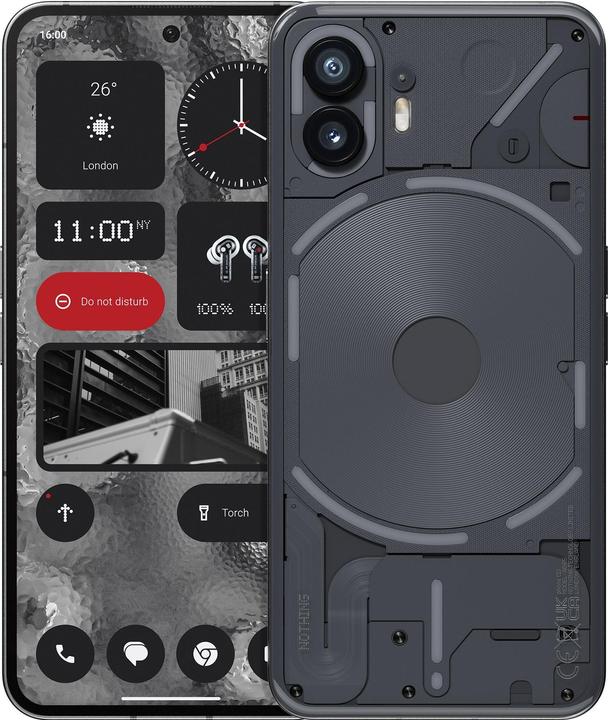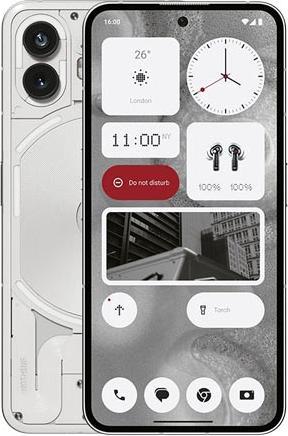

Nothing Phone (2) finalised: better hardware, new software

Nothing has been revealing details about the Phone (2) in bits and pieces since February 2023. Now the phone has finally been unveiled in full.
Compared to its predecessor, the Phone (2) can boast some clear improvements. Nothing makes minor adjustments to the design and remains true to the transparency and the flashing back. In terms of software, widgets on the lock screen, among other things, should make a difference compared to other Android smartphones.
Upgrade for the processor
While its predecessor was still in the mid-range segment, the Nothing Phone (2) is now in the top class. However, its features only place it in the second tier.
The most important key data:
- 6.7-inch OLED display, 2412 × 1080 pixels, 120 hertz, 1000 nits (typical)
- Snapdragon 8+ Gen 1
- 8/12 gigabytes of RAM
- 128/256/512 gigabytes of storage space (not expandable)
- IP54 (splash water protection)
- 4700 mAh battery, 45 watt charging (15 watt wireless)
- 50 megapixel main camera, Sony IMX890, f/1.88, 24 mm KB focal length
- 50-megapixel ultra-wide-angle camera, Samsung JN1, f/2.2, 114-degree field of view
- 32 megapixel front camera, Sony IMX615, f/2.45
- Android 13, three years of Android and four years of security updates
The new processor of the Phone (2) is likely to have the biggest impact compared to its predecessor. In addition to greater performance and lower power consumption, it is designed to improve image processing. According to the manufacturer, it can capture 4000 more camera data than the chipset of the Phone (1). I'll take a look at exactly how this plays out in the tested new smartphone.
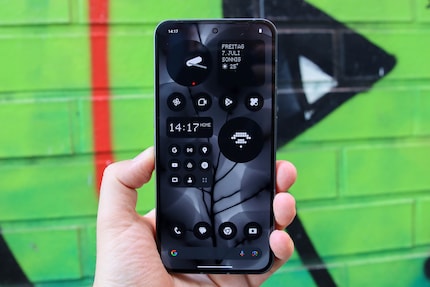
Source: Jan Johannsen
The changes in display size, battery capacity or charging speed are rather minor. There are also no major changes to the design. Nothing continues its design concept. The transparent back has been given slightly rounded edges and the "inner workings" have been restructured. The frame is still made of aluminium, which is said to be completely recycled.
The LED light called Glyph now consists of eleven elements. Previously there were five. You can still customise it for different notifications. You can use the light pattern to recognise which app has something to tell you or who is contacting you. You can now also set the LED to light up permanently so that you don't ignore a notification and then forget about it.
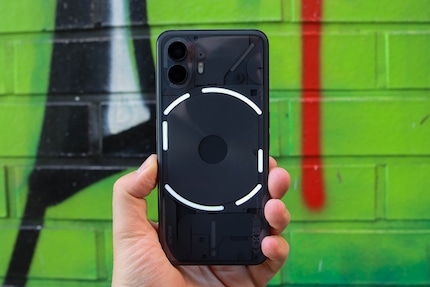
Source: Jan Johannsen
New is the Glyph Timer. One of the longer LEDs indicates the remaining time. In other words, it gets darker from one end to the other. Glyph Progress works in a similar way. The function shows you, for example, how far away your journey is.
Software over hardware
Major changes are in store with Nothing OS 2.0, which sounds like its own operating system but is based on Android 13. I would compare it with other user interfaces such as Samsung's One UI. However, Nothing sticks to the design concept of its devices. "Dot matrix" is the appropriate keyword. A new addition is a monochrome design, although not all app icons are subject to this yet.
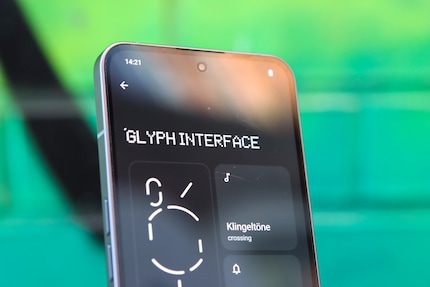
Source: Jan Johannsen
Customisations to the grid or app labelling are also available for user interfaces or launchers from other manufacturers. However, Nothing can still claim some functions exclusively for itself. For example, customised light patterns for the glyph can only be composed with Nothing. Speaking of composing: The manufacturer has teamed up with the "Swedish House Mafia", among others, to help you create your own ringtone. The DJs in turn invested their own money in the company during the last financing round. This makes them even more than just bought-in advertising figures.
The widgets on the lock screen sound very practical to me. You can use them to select quick settings that can be accessed quickly without unlocking the smartphone. There are also several informative widgets.
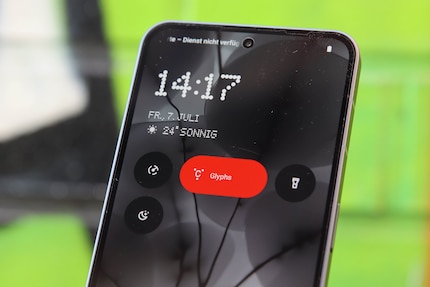
Source: Jan Johannsen
The Nothing Phone (2) will be available for pre-order from 17 July and will be delivered from 21 July.
You can find more detailed information for Switzerland in the following article:
And here for Germany:
Cover photo: Jan Johannsen

As a primary school pupil, I used to sit in a friend's living room with many of my classmates to play the Super NES. Now I get my hands on the latest technology and test it for you. In recent years at Curved, Computer Bild and Netzwelt, now at Digitec and Galaxus.
From the latest iPhone to the return of 80s fashion. The editorial team will help you make sense of it all.
Show all
